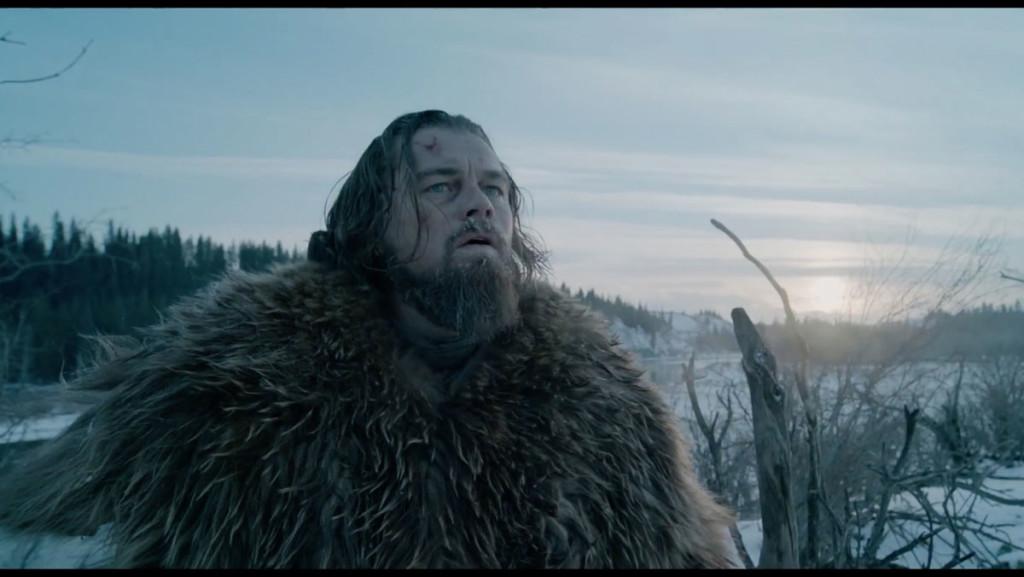There are few works in recent memory that are more profoundly chilling than “The Revenant.” After watching the film, it’s hard not to be left shivering, haunted by a frigid, hostile wilderness and the hot blood that paints it.
Leonardo DiCaprio plays Hugh Glass, an experienced fur trapper in America’s untamed West in the 1820s. He travels with his half-Pawnee son (Forrest Goodluck) and a small group of frontiersman, gloomily floating downriver after a sudden attack from local natives wipes out most of the original hunting party. Hugh clashes with the brutally pragmatic John Fitzgerald (Tom Hardy), but harsh words soon prove to be the least of his problems when he is subsequently mutilated by a grizzly bear. What follows is a betrayal, a journey fuelled by vengeance and a survival story for the ages.
Director Alejandro González Iñárritu’s film is gorgeous and grotesque simultaneously, balancing solemn contemplation with wrenching savagery. “The Revenant” repeatedly overwhelms the senses with imagery that alternates between the primal and the ethereal.
The film projects an incredibly elemental sense of place. For a story pitting man against nature, it’s only appropriate that the environment plays a crucial role. Every scene is infused with the imposing energy of some natural entity. Be it a bison herd materializing at daybreak, a punishing blizzard at dusk or an angry stream carrying a struggling body to its executioner, each element firmly plants the viewer within this unforgiving landscape. This technique furthers the audience’s identification with Hugh’s plight. Members of the audience can almost feel the blisters forming on their fingers and the frostbite gnawing at their toes.
At the same time, “The Revenant” expresses an ambiguous yet unmistakably earthy spirituality that hovers above the drama’s grit. Fragments of haunted memories and dreamy visions flash by in brief interludes, but even the more grounded sequences are imbued with a degree of eeriness by cinematographer Emmanuel Lubezki’s seemingly omnipotent camera. The presence of God is evoked, and an overarching natural order quietly makes itself known in surprising ways as good deeds are rewarded and injustices are paid back.
The film isn’t especially deep, but as a straightforward narrative of basic elements — man, nature, God, revenge and redemption — it is almost perfectly pitched. There is so much detail and intelligence in its construction. Amid this tale of personal tragedy and reinvention, there is the metaphoric image of a young nation wrestling with the naive condescension and resulting slaughter that would come to taint its future successes.
Most compelling of all is the complete expression of a character’s journey. “The Revenant” demonstrates the distinction between a regular story that one seamlessly drops in and out of and an immersive trip that can be felt in one’s bones. It takes its time, and almost every bit of the deliberate tempo feels appropriate, conveying the cumulative journey and a character’s mental and spiritual growth.
In this leading role, DiCaprio has further solidified his status as one of Hollywood’s greatest treasures. With “The Revenant,” DiCaprio puts his physicality to new use, fully conveying the anguish of a broken man. Even in his quieter, more reflective scenes, he powerfully demonstrates the torment of a battered soul. Never before has he emitted such a sense of vulnerability in his acting. It’s a harrowing performance and one that is immediately career defining.
For most viewers, the experience of watching the film will hinge on their capacity to withstand not only brutal violence, but also uncompromising misery. “The Revenant” is an endurance test of sorts, and it lets the audience know what it’s getting into by the end of the opening scene. But if one manages to make it past the ugliness and find resonance in the picture’s subtle rhythms, the discomfort is worth it. Meticulously built and rawly performed and felt, “The Revenant” is an acquired taste — and a bitter one. However, it is also one with ample rewards for those who connect with it on a visceral level.
“The Revenant” was written by Mark L. Smith and Alejandro González Iñárritu and directed by Iñárritu.





















